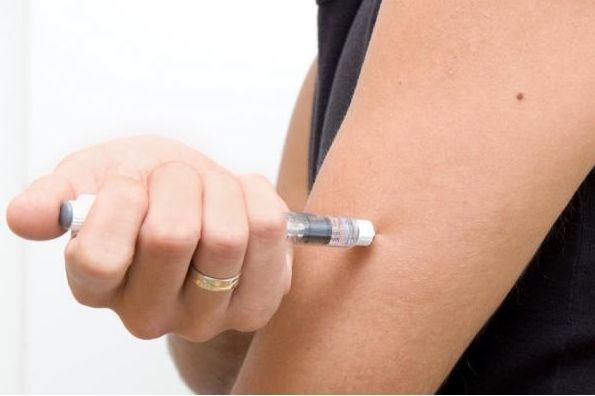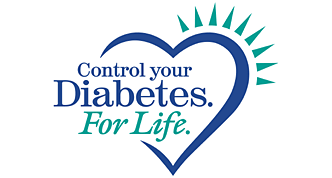What Are The Signs And Symptoms Of Diabetes
The early symptoms of diabetes, particularly Type 2 diabetes, can come on harmlessly. Over time, you might even develop certain diabetes complications, though you may not display any typical diabetes symptoms.
According to centers for disease control & prevention 2014 report, more then 8 million people in the United States suffer from undiagnosed diabetes. However, to avoid being part of this statistic, you can understand the symptoms of diabetes and call for early diagnosis and treatment and lead a better life. If you experience any of the typical symptoms of diabetes explained below, speak to your doctor immediately:
Increased urination and excessive thirst:
If you suffer from diabetes, you will have an excessive build up of sugar or glucose in your blood. Your kidneys will be forced to work harder to filter and absorb the extra sugar. If they cannot keep up with the pace, the extra sugar will pass into your urine along with fluids taken from your tissues. This leads to urinating frequently, causing tiredness and dehydration. To get over your thirst, you will drink more fluids and this will cause you to urinate more.
Increased hunger:
Insufficient insulin to move sugar into your cells, your muscles and organs become depleted of energy. This triggers intense hunger.
Blurred vision:
Diabetes affects your vision when high blood sugar levels pull out fluid from your tissues and lenses, thus affecting your capacity to focus. If left untreated, diabetes can bring about the formation of new blood vessels in your retina, while simultaneously damaging those already established there. At this stage, this development does not cause problems with vision but if these changes progress without treatment, it could cause loss of vision and blindness.
Mood swings:
This is a commonly felt symptom of diabetes where the patient undergoes mood changes due to a variety of factors, such as quick changes in blood sugars, depression and the stress of managing this condition every day.
Dark skin patches:
If you suffer from diabetes, you will notice dark skin patches in soft and velvety folds, usually in the neck and armpits. This is due to insulin resistance.
Weight gain:
Diabetics experience an unusual weight gain due to the intense hunger they go through.
Fatigue:
Fatigue is a big factor for diabetes patients. This happens due to dehydration due to the many times one urinates and the body’s inability to function optimally since it is less capable of converting sugar into energy.
Weight loss:
When the body loses sugar through frequent urination, you lose essential calories too. Simultaneously, diabetes can prevent the sugar in your food from reaching the cells, making you feel hungry constantly. This entire process causes a rapid weight loss, particularly if you are diagnosed with Type 1 diabetes.
Tingling in the hands and feet:
An excess of sugar in the blood can cause nerve damage. Diabetics experience a loss of sensation or frequent tingling in the hands and feet and a burning sensation in the arms, legs and hands are also experienced.
Slow-to-heal sores or recurrent infections:
Diabetics suffer with frequent infections because high blood sugar levels damage the natural healing process of your body and its ability to fight infections. This is manifest as vaginal and bladder problems among women.
Nausea and vomiting:
As there is a rise and fall in blood glucose levels, the body metabolism can be interrupted and confused, causing nausea. The patient might suffer from low blood pressure or hypotension, causing dizzy spells.
Irritability
This is due to the lack of energy experienced by diabetic patients.
Red, inflamed and tender gums:
Diabetes may lower your immunity to disease, thereby increasing your risk for being infected, particularly in the gums and bones in the mouth that hold the teeth together. This results in your gums pulling away from your teeth, your teeth loosening, or pus pockets or sores developing in the gums. This happens when you suffer from gum infection as a precursor to diabetes.
Advanced Symptoms of Diabetes:
Sometimes diabetics do not have typical symptoms or have only very mild ones. However, untreated diabetes can be dangerous as it can lead to very high blood sugar levels or ketoacidosis. This condition is less common among Type 2 diabetes patients as insulin continues to be produced in this condition. However, it can lead to:
- rapid and deep breathing
- facial flushes
- bad breath
- coma
- mental confusion
- nausea or vomiting
- stomach pain
Hypoglycemia or abnormally low blood sugar levels can cause:
- rapid heartbeat
- anxiety
- fainting
- drowsiness
- cramps
- sweating
- dizziness and trembling
- confusion
Diabetes symptoms unique to men:
Among men, diabetes can cause erectile dysfunction (ED) and other urological problems.
Diabetes symptoms unique to women:
Women experience many of the same symptoms of diabetes as men, barring a few. They are:
- oral and vaginal yeast infections and thrush
- female sexual dysfunction
- polycystic ovary syndrome
- urinary infections







